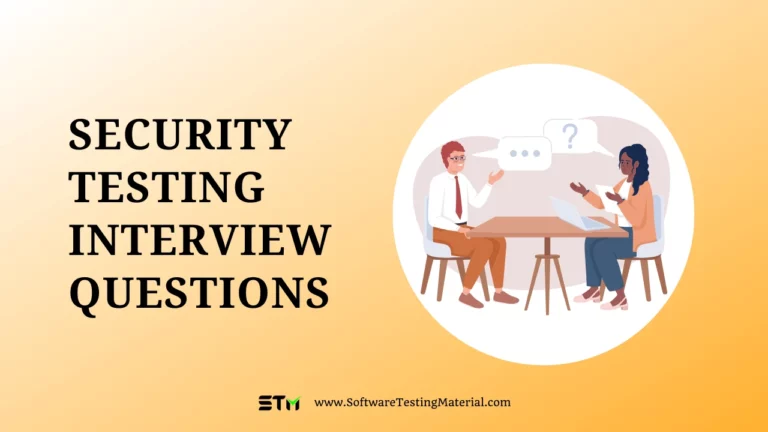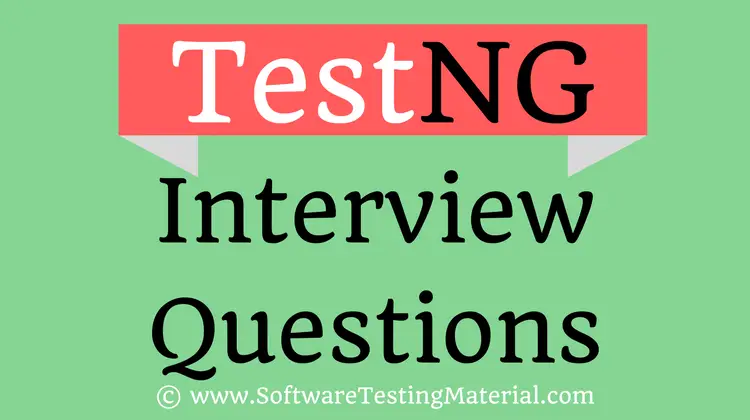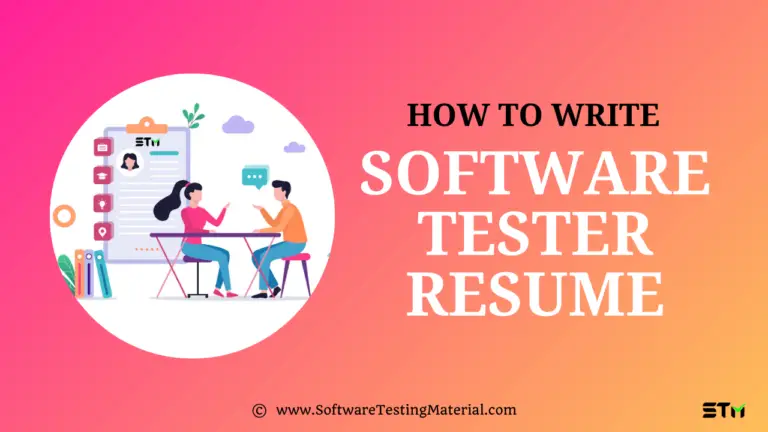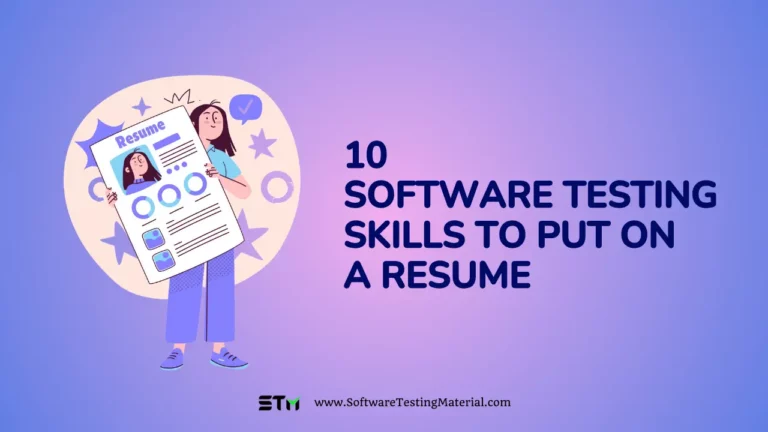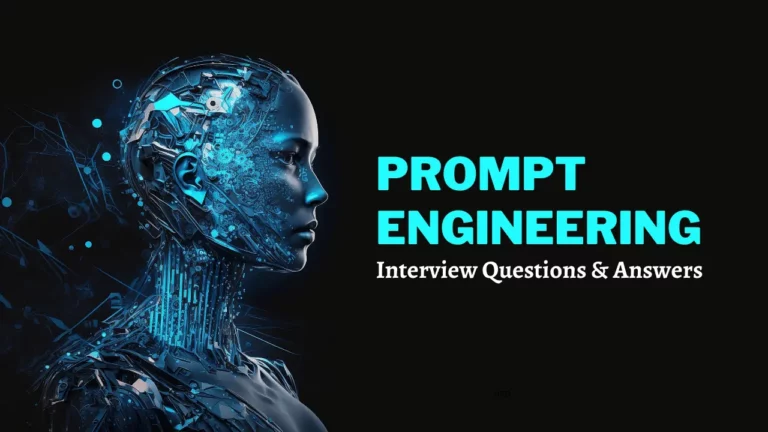40+ Game Testing Interview Questions And Answers
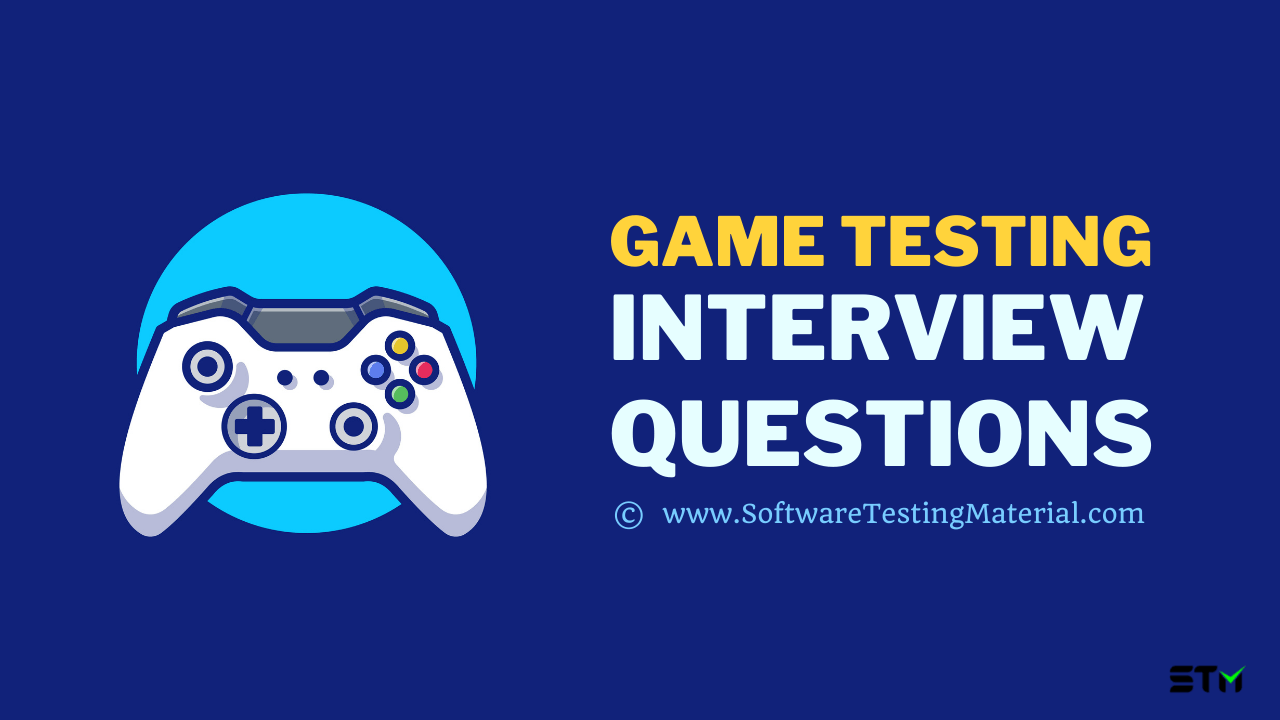
During a game testing interview, you should demonstrate your understanding of game psychology, in-depth knowledge of the game design, and your communication skills. You have to show them your determination and patience as they expect you to concentrate for long periods to work.
You have to show your employer that you are passionate about gaming, so you should be well aware of the gaming industry, its trends, history, consoles, etc. The interviewer is most likely to ask you three types of questions, basic background questions, testing-based questions, and gaming knowledge.
Don’t miss: Game Testing Detailed Guide & How To Become A Game Tester
Video Game Tester Interview Questions & Answers
Here are a few questions that would help you crack your game testing interview. There are few questions that you have to answer using your personal experience. There is a sample answer given for such scenarios.
1. How would you test a game?
Answer: I would test multiple scenarios, find glitches and bugs, report those issues to the developing team and retest those scenarios. It will be my responsibility to verify if the game’s design is as expected and validate the performance of the game
2. Do you think game testing is all about playing games all day?
Answer: Game testing is similar to testing any other software application. We test the application by performing user behavior. In this case, we play the game just like the user does to find bugs. It is highly repetitive, and we have to give attention even to the minute details.
3. What is the biggest myth about being a game tester?
Answer: Game testers have the same roles and responsibilities as QA testers. One of the biggest myths about game testers is that we get paid to play games. In reality, we write test cases, file bug reports, and communicate with different stakeholders, just as any QA.
4. Explain the process followed to test any game?
Answer: We have to start with understanding the game concept by looking at the storyboard, architecture, understanding the features of the game, characters, difficulty level, etc. Then we have to follow the below steps.
- Gather Requirements
- Create test strategy
- Prepare Test cases
- Execute
- Review and Report
5. What are the types of testing techniques used in the gaming industry?
Answer: We can test a game with different types of testing. As per industry standards, we use Functionality testing, Combinatorial testing, Clean-room testing, tree testing, Playtesting, Compatibility testing, Performance testing, etc.
6. How will you ensure the game is error-free? What are the different strategies you would use?
Answer: To make sure that the gaming application is error-free, we can follow a few strategies that would help me uncover critical bugs.
- I would try to break the game by playing out several levels repeatedly in various conditions.
- I would test the game on different devices like consoles, computers, and mobile phones, based on its adaptability.
- I would try out different settings and alternatives within the game to see how it performs.
- I would analyze new versions of the game and retest existing bugs.
7. What are the challenges you have faced in your career as a game tester?
Here you can explain the issue faced in your previous workplace.
Sample Answer: Some of the common challenges I have faced are
- Lack of communication between different stakeholders
- It’s nearly impossible to verify every facility in the game.
- Every game application is unique, so there is no definitive guide that we can reference to test a game.
8. Why do you want to work in the video game industry?
Here you can share your personal experience with the interviewer.
Sample Answer: Games always fascinated me. I would play for endless hours. I even remember taking screenshots to report a bug while playing, even when I was young. I always wondered how they didn’t notice such a critical bug. After getting into college, I got into coding and was fascinated by the gaming industry. I would like to think that 10-year-old me would be proud of the career I have chosen.
9. What are your favorite video games?
The interviewer wants to know your passion for gaming, as the job requires you to play the game repeatedly. They need to know whether you enjoy the activity.
Sample Answer: Even though I spend hours playing online interactive games with my friends. My all-time favorite would be Mario, there is something about the music, color, or world-building that makes it fun, engaging, and addictive.
10. What are common things video game developers overlook?
Here you have to show your understanding of different aspects of the game.
Sample Answer:
From a developing perspective, I have seen several games with great storylines but characters losing their significance as the game moves to different levels or getting redudentent in their role.
From a testing perspective, I have encountered a lot of bugs. Characters glitching when they are near a wall or getting into a dead-end where there is no way to proceed further in the game, etc.
11. What would you do if users noticed a lot of bugs in a game you developed?
Here you have to show the interviewer your problem-solving skills.
Sample Answer: I would try to collect as much information about them as possible, like steps to reproduce the issue, the pre-conditions, screenshots, video logs etc. Create a clear bug report and assign it to the person who would fix it. Then communicate with different stakeholders about these issues.
12. Are there any ways you would improve the games you’re playing?
The interviewer might give you a game and make you play, then ask this question. Here you can reveal your expertise as a gamer, critical thinker or your knowledge in game psychology.
Sample Answer: I would try to improve the sound quality i.e, the music and the audio quality i.e, the voice chat. Place a zoom in and out camera angle for better clarity.
13. Why do you want to work here?
Here you have to show how your skills & passion can benefit the organization.
Sample Answer: I see this opportunity as a way to contribute to the game industry, and I feel I can do it with my years of experience as a user. I feel my skills are particularly well-suited to this position because it requires critical thinking, attention to detail, and a lot of patience.
14. What is the best way to assess a video game’s quality?
Answer: We can assess the quality of the game with few factors like
- Is it easy to register, download, and install a video game.
- How convenient, consistent, and flexible the user interface is. (Controls, Difficulty Level, etc.)
- Navigation should be self-explanatory – Menu items, Action Key configurations, Help, and other options.
- How good was the “story” of the game? (Presentation/Context)
- How much fun you had playing it (Visual presentation, animations, background objects, primary objects, frames.)
- Did they achieve what they wanted to do? (The interaction between characters and environment is designed)
- Overall replayability of the game
- Background Music (BGM) & Sound effects.
- Camera views, Zoom in, Zoom out functionality.
- Battery consumption
- Features like multiplayer feature, saving the levels/scores
- Security of the game – Are there any potential threats by intruders.
15. What are the skills required for successful video game testers?
When discussing the skills required to be a successful video game tester, it’s essential to highlight both technical and soft skills. Start by mentioning your strong problem-solving abilities, as these are crucial for identifying and resolving issues within games. It’s also important to show your knowledge of the gaming industry and the quality assurance process. Additionally, working well under pressure and meeting deadlines is vital. Attention to detail ensures that no bugs or glitches are overlooked, and a good dose of patience is necessary for performing repetitive tasks during testing.
Sample Answer: To be a successful video game tester, one should have excellent problem-solving skills. It’s important to know a lot about the gaming industry and how quality assurance works. Testers often face tight deadlines, so being able to work quickly is essential. Paying attention to tiny details can help catch bugs that others might miss, and having the patience to repeat tasks is crucial when testing. I believe that by honing these skills, I can contribute significantly to improving the gaming experience for players.
16. What is your approach to problem-solving in video games?
When discussing your problem-solving approach as a game tester, focus on your method for identifying, analyzing, and resolving issues. Mention how you gather information, test different scenarios, and collaborate with team members. Keep your answer clear and straightforward, making sure to highlight your logical thinking and attention to detail. Providing a sample answer can illustrate your approach effectively.
Sample Answer: My approach to problem-solving in video games starts with carefully playing the game to see where issues arise. I take notes on any bugs or glitches I encounter, like a game freezing or graphics not appearing correctly. After identifying the problem, I try to recreate it by testing different situations, such as changing game settings or using different characters. I also communicate with my team to discuss my findings and gather their insights. This teamwork helps us find solutions quickly and improves the game for everyone.
17. When playing a game, what techniques would you use to find all the bugs and glitches?
Answer: There are different ways to find out bugs in the game. Some of them are
- Exploratory testing
- Not following the rules of the game
- Playing in the wrong order
- Trying different functionalities everywhere
- Different strategies like minimum/maximum input
18. What are your opinions of the most difficult aspects of testing video games?
Here you can explain the obstacles you faced while testing in our previous job.
Sample Answer: We have to consider a lot of things while testing game design, architecture, pacing, features, logic, gameplay, UX, balance, and more. Combined with short deadlines can make it a challenging process.
19. What recommendations do you have for games you’ve previously tested?
It shows what type of end-user experience you hope to provide in the game and your previous work experiences.
Sample Answer: I gave a few suggestions to improve the usability of the game. To enhance the colors for better visibility and other features that might frustrate the user while playing the game.
20. Have you found any glitches in the games you play? Name the platform and the part where it happens?
Here the interviewer wants to know your attention to detail and critical thinking skills. More specific the better.
Sample Answer: I have observed in a clash of clans when I try to donate troops to my friends I face network error, or they would not receive. I even tried to reproduce the issue with an iOS phone and laptop with WiFi and mobile network. It noted different results.
21. What is your favorite genre?
Here you can express your interest and let the interviewer know your passion for gaming.
Sample Answer: When I started gaming, I used to play a lot of shooter games, sports-based games nowadays, I see myself playing narrative fantasy types of games because of the extensive world-building and adventure plots.
22. Could you share your experience in the video game industry?
When answering a question about your experience in the video game industry as a game tester, it’s important to focus on your specific roles, the games you have worked on, and what you learned. Keep your answer clear and straightforward. You might want to mention any testing methods you used, the types of games you enjoyed testing, and any challenges you faced. Sharing your passion for gaming and how it drives your work can also resonate well.
Sample Answer: I have been working in the video game industry for over three years as a game tester. I started by testing mobile games and then moved on to console games. My job involved finding bugs and making sure the games were fun to play. I worked on a popular action game where I tested different levels and reported issues to the developers. One of the biggest challenges was making sure the game ran smoothly on different devices. I love gaming, so I enjoy being part of the process that helps make games better for players.
23. Which video games have ignited your passion the most?
When responding to a question about the video games you are most passionate about as a game tester, it’s helpful to name specific games and explain why they stand out to you. Talk about what features or storylines captivated you and how your passion for these games influences your testing work. Consider mentioning any genres you particularly enjoy and how they align with your experience.
Sample Answer: I have always been passionate about role-playing games (RPGs), especially “The Witcher 3: Wild Hunt.” The game’s rich story and character development really caught my interest. I love how choices affect the outcome, which makes every playthrough unique. Another game I enjoy is “Stardew Valley,” where the relaxing gameplay and farming mechanics keep me engaged. Working on these kinds of games as a tester motivates me to find ways to enhance player experiences and ensure the storylines are coherent and enjoyable for everyone.
24. Which gaming platforms do you feel most comfortable working with?
When answering a question about your preferred gaming platforms as a game tester, it’s important to mention specific systems you’ve worked on, such as PC, Xbox, PlayStation, or mobile devices. Discuss why you feel comfortable with these platforms, whether it’s due to your experience or familiarity with their software and hardware. Being clear and concise will help showcase your expertise in the field.
Sample Answer: I am most comfortable working with PC and PlayStation platforms. I find PCs versatile for testing because of their wide range of hardware configurations, which allows me to identify compatibility issues. I’ve worked on various games for both consoles, including action and adventure titles, where I tested graphics performance and gameplay mechanics. My experience with these platforms helps me ensure that players have a smooth and enjoyable experience.
25. What do you believe is the most effective way to deepen your understanding of video games?
When discussing how to deepen your understanding of video games as a professional game tester, focus on practical experiences and educational approaches. Mention activities that can enhance your skills, such as playing different genres of games, studying game design principles, and participating in gaming communities. Additionally, consider the importance of feedback and learning from other testers or developers. Keep your language straightforward and relatable.
Sample Answer: The most effective way to deepen my understanding of video games is to play a variety of game genres. This helps me see how different mechanics work and how they affect the player’s experience. I also like to read articles and watch videos about game design to learn about the choices that developers make. Joining online gaming communities allows me to share tips and learn from other testers. Finally, getting feedback from my testing team helps me understand common issues and how to improve games.
26. What do you consider the most challenging aspect of game testing?
When discussing the most challenging aspect of game testing, it’s important to focus on the complexities and unpredictability involved in the process. You can mention how bugs and glitches often vary, making them difficult to identify and document. It’s also useful to talk about the pressure to meet deadlines while ensuring the game is polished.
To effectively answer this question, you should express honesty about the challenges faced while still conveying your passion for overcoming them. Use clear language and provide examples to demonstrate your understanding.
Sample Answer: The most challenging aspect of game testing is finding and reporting bugs accurately. Sometimes, bugs only happen in specific situations or after playing for a long time, which can make them hard to spot. Additionally, I often have to work under tight deadlines, so balancing thorough testing with time management can be tricky. However, I see these challenges as part of the job, and overcoming them helps me grow as a tester and improve the final game.
27. What inspires your continued passion for playing video games?
When answering this question, think about what elements of gaming keep you excited and engaged. Consider aspects like storytelling, creativity, community, and the thrill of competition. It’s also good to connect these inspirations back to your work as a game tester, showing how your passion enhances your testing skills.
Sample Answer: “What inspires my continued passion for playing video games is the incredible stories they tell. I love getting lost in different worlds and experiencing the adventures of the characters. The creativity that goes into game design is amazing, and as a game tester, I appreciate how every detail is crafted to create a fun experience. Additionally, the gaming community inspires me—connecting with others who share my love of games makes the experience even better. Finally, I enjoy the challenge of mastering new skills and strategies, which keeps me coming back for more.”
28. What do you consider the most rewarding aspect of game testing?
When answering the question about what you find most rewarding in game testing, it’s important to be honest and personal. Think about what you enjoy the most about your job. Consider aspects like problem-solving, creativity, and teamwork. Keep your answer clear and easy to understand.
Sample Answer: “I believe the most rewarding thing about game testing is being part of a team that creates fun experiences for players. It’s exciting to see how my feedback helps improve the game. Finding bugs and figuring out how to fix them feels great because I know it’s making the game better for everyone. Also, I love seeing the final product and knowing that my work contributed to it!”
29. What advantages do you believe come with being a game tester?
When asked about the advantages of being a game tester, you should focus on highlighting your personal experiences and insights. Start by mentioning what excites you about the role, such as the opportunity to play games and provide feedback. Then, discuss how it allows you to be part of creating something new. Finally, you can mention the potential career advancement opportunities within the gaming industry.
Sample Answer: “As a professional game tester, I believe there are many benefits to this job. First, I get to play video games for hours, which is a dream come true for any gamer. Every day, I have the chance to discover new games and help make them even better by finding bugs and giving feedback. This role not only keeps me close to the gaming world but also gives me insight into how games are developed. Plus, being a game tester opens up paths to other jobs in the industry, such as game design or development, so it’s a great stepping stone for my career. Overall, it’s a fun and rewarding job that allows me to work with a passionate team.”
30. In what ways do you believe game testing can enhance your skills as a gamer?
When answering this question, remember to provide clear and straightforward points that showcase your understanding of the benefits of game testing. Focus on key skills and experiences that align with the role of a game tester.
Sample Answer: “Game testing can really help me become a better gamer in a few ways. First, it teaches me to be patient. While testing a game, I need to try things multiple times to find any problems or bugs. This means I learn to take my time and focus on getting things right. Second, I become better at solving problems because I have to think about why a bug happened and what needs to be done to fix it. Third, I learn to communicate better since I need to explain my findings to developers clearly. Lastly, I get a chance to see behind the scenes of game development, which helps me appreciate the hard work that goes into making the games I enjoy.”
31. What qualities do you consider essential for a successful game tester?
When answering this question as a professional game tester, it is essential to keep your response clear and straightforward. Focus on highlighting a few key qualities that you believe are vital for success in the role. Use examples from your own experience to illustrate these qualities and make your answer relatable.
Sample Answer: “I believe the most important qualities for a successful game tester are attention to detail, patience, creativity, and strong communication skills. Attention to detail is crucial because even the smallest bug can affect gameplay. Patience is important since testing can take a long time, and sometimes you have to repeat the same tasks to find issues. Being creative helps in thinking of new ways to test the game and discover hidden problems. Lastly, good communication is essential for sharing findings with the development team and collaborating with other testers. These qualities help ensure that the game is tested thoroughly and is enjoyable for players.”
32. How do game testers differ from other gamers?
Sample Answer: “As a professional game tester, what sets me apart from other gamers is my ability to think critically about the games I play. While many gamers enjoy playing for fun, I’m focused on finding and reporting any bugs or glitches in the game. I also communicate clearly with developers about the problems I encounter, which helps make the game better. Lastly, I have the patience to repeat tasks and pay close attention to details, ensuring that I catch every issue, no matter how small. This systematic approach is what makes me a valuable part of the game development process.”
33. What do you think is the best way to get started in game testing?
As a game tester, the best way to get started is to focus on learning and practice. First, it’s important to understand how games work. You can do this by playing different types of games and paying attention to their design and mechanics. Next, try to get hands-on experience by looking for opportunities to test games. This could be through internships or by joining beta tests for new games.
Here’s a simple way to answer this question:
- Learn the Basics: Understand game design and mechanics.
- Get Hands-On Experience: Look for internships or volunteer opportunities.
- Join the Community: Engage with other game testers and developers.
- Document Your Work: Keep notes about what you’ve learned and tested.
34. Is it possible for a bug to have high severity but low priority?
Yes, there can be a bug with high severity but low priority. Severity refers to how serious the bug is, while priority indicates how quickly it needs to be fixed. For example, if a game crashes during a specific level but that level is very far into the game and most players do not reach it quickly, this bug would be considered high severity but low priority. The developers may focus on fixing bugs that affect the earlier parts of the game first, where more players will encounter issues sooner.
Sample Answer: “In my experience as a game tester, I’ve seen bugs that are very serious but don’t need immediate attention. For instance, if there is a major crash in a late game level that most players don’t reach quickly, it won’t be a high priority to fix right away. However, it is still a high severity issue because it affects gameplay significantly when players do reach that point.”
35. Once the developer addresses the bugs you reported, what becomes your responsibility? What actions will you take next?
As a game tester, if developers fix the bugs I reported, my responsibility is to verify that these fixes work correctly. I will play the game again to ensure that the bugs no longer cause problems and that the game functions as intended. It’s also important to check if the fixes have not introduced new issues. This process is called regression testing. After this, I will communicate with the team to share my findings and let them know if the fixes are successful.
Sample Answer: “When developers fix the bugs I’ve reported, my job is to test the game again to make sure everything works well. I’ll look for the bugs to see if they are truly fixed and play through the areas that were affected. I also need to watch for any new problems that may have popped up because of the changes. After testing, I will tell my team about the results, so we know if the game is ready or if more work is needed.”
36. Why did you choose game testing over other testing domains?
When answering this question, it’s important to explain your passion for video games and how it motivates you to ensure high-quality gaming experiences. You could mention how game testing allows you to combine your love for gaming with technical skills, and how you enjoy being part of the game development process.
Sample Answer: I chose game testing because I have always loved playing video games. I enjoy the excitement of discovering new games and exploring their features. Game testing allows me to use my passion for gaming while also helping to make sure that games are fun and work well for players. I like being part of the process that creates a great gaming experience, and I find it rewarding to help catch bugs and suggest improvements before a game is released.
37. Have you encountered bugs while playing your favorite games?
When answering this question as a professional game tester, it’s important to share specific examples of bugs you encountered and your thought process during testing. Start by mentioning the game, describe the bug clearly, and explain what impact it has on gameplay.
Sample Answer: Yes, while playing my favourite game, I found a few bugs. One bug made my character get stuck in a wall, which prevented me from continuing the game. I reported it by describing what I was doing when it happened and how to reproduce the issue. Another bug I found was that some items didn’t appear on the screen during a mission, making it hard to complete the task. I made sure to report these issues so that the developers could fix them before the game is released.
38. How you write a bug report after you encountered a bug in the game?
When reporting a bug in a game, it’s important to provide clear and detailed information so the developers can understand and fix the issue. Follow these steps:
- Describe the Bug: Clearly state what the bug is and what you were doing when you encountered it.
- Reproduce Steps: List the steps needed to recreate the bug, so the team can see it for themselves.
- Environment Details: Include information about the game version, your system specifications, and whether you are using any mods.
- Screenshots/Video: If possible, attach screenshots or a video showing the bug happening to help clarify the issue.
Sample Answer: I encountered a bug while playing GTA: Vice City. The character, Tommy, got stuck in a wall during a mission.
Steps to reproduce the bug:
- Start the mission ‘Loose Ends.’
- Go to the location where you need to chase the enemy.
- Attempt to enter the building on the left side.
Environment Details:
- Game Version: 1.0
- System: Windows 10, Intel i5, 8GB RAM
- No mods applied.
I’ve attached a video showing the bug occurring. Please investigate this issue as it prevents me from completing the mission.”
39. What is the Bug Life Cycle?
When explaining the bug life cycle, it’s helpful to describe the process a bug goes through from the moment it’s found until it’s fixed and verified. This cycle includes several stages: identification, reporting, fixing, and verification, which ensure that issues are addressed efficiently.
Sample Answer: The bug life cycle is how we track and manage issues in a game. First, when we find a bug, we report it with details like what happened and how to reproduce it. After that, the development team will look at the report, fix the bug, and then send it back to us for testing. We check if the fix works properly. If the bug is gone, we mark it as ‘closed.’ If the bug is still there, it remains open until it is fixed. This cycle helps make sure games are as good as they can be before they’re released.
40. What games do you play?
As a professional game tester, it’s important to express your gaming preferences clearly. You can answer this question by listing a few of your favourite games and briefly describing why you enjoy playing them.
Sample Answer: I play various games, but my favorites include ‘The Legend of Zelda: Breath of the Wild’ because of its open-world exploration and beautiful scenery. I also enjoy ‘Call of Duty: Warzone’ for its intense multiplayer battles and strategic gameplay. Lastly, I like ‘Stardew Valley’ for its relaxing farming and crafting mechanics, which give me a break from more competitive games.
41. What types of games do you play?
When asked about the types of games you play, it’s helpful to mention the genres you enjoy, how they relate to your testing work, and any specific games you find noteworthy. Keep your answer simple and clear.
Sample Answer: I enjoy playing many types of games because it helps me as a game tester. I mostly play action-adventure games, RPGs, and racing games. Action-adventure games like ‘GTA V’ are fun because they have exciting stories and exploration elements. I also love RPGs like ‘The Witcher 3’ because of their deep narratives and character development. Racing games like ‘Forza Horizon’ are great for testing driving mechanics. Playing these games helps me understand what makes a game enjoyable and how to find bugs in different game styles.
42. What are the main responsibilities of a game tester?
A game tester plays a crucial role in the development of video games. Their main responsibilities include:
- Playing the Game: Testers play the game multiple times to understand its mechanics and overall flow.
- Finding Bugs: They look for glitches or errors in the game, such as crashes, graphical issues, or gameplay problems.
- Reporting Issues: Testers document any issues they find, providing detailed descriptions and steps to reproduce the bugs for the development team.
- Testing Features: They verify new features and ensure they work as intended without introducing new problems.
- Feedback: Testers provide feedback on the game’s content, design, and user experience, helping developers enhance the game.
- Collaboration: They work closely with developers and designers to communicate findings and suggest improvements.
By thoroughly testing the game, testers help ensure a smooth and enjoyable experience for players upon release.
43. How do you approach testing a new game feature or level?
When testing a new game feature or level, I start by reviewing the design documents and understanding the intended functionality. This helps me grasp the objectives and expected outcomes of the feature. Next, I play through the level or use the feature multiple times to explore all possible interactions. I keep an eye out for any bugs or inconsistencies during gameplay, taking notes on my observations. After identifying any issues, I document them with clear steps on how to reproduce them, including screenshots if needed. I also consider the user experience by providing feedback on the overall design and gameplay flow, ensuring that the feature not only works correctly but also enhances the enjoyment for the player. Finally, I collaborate with the development team to discuss findings and suggest necessary adjustments, contributing to the improvement of the game.
44. What tools or software are commonly used in game testing?
Game testing relies on a variety of tools and software designed to streamline the testing process and enhance the quality of the game.
Commonly used tools include bug tracking systems such as JIRA or Bugzilla, which allow testers to log issues and manage reporting efficiently.
Additionally, test management software like TestRail helps in planning, executing, and documenting test cases while providing insights into testing progress.
Popular game testing tools, such as Unity Test Tools, BugSplat, can be utilized for testing and reporting.
Performance testing tools, such as LoadRunner and Apache JMeter, assist in assessing the game’s performance under various conditions.
Finally, screen recording software and tools for capturing gameplay footage are invaluable for documenting bugs and enhancing communication with developers.
These tools collectively contribute to a thorough and effective testing process, ensuring a polished final product.
FAQs
How to prepare for a game tester interview?
To prepare for a game tester interview, research the company and its games thoroughly to understand their products and values. Be ready to discuss your testing experiences, including specific examples of bugs you’ve identified and how you documented them. Additionally, practice answering common interview questions related to gameplay mechanics, testing methodologies, and how you work within a team environment.
What should I include in my resume when applying for a game tester position?
When applying for a game tester role, highlight any relevant experience, such as previous testing roles or participation in beta testing. Include skills related to quality assurance, familiarity with various gaming platforms, and any certifications in game testing if applicable.
How can I improve my chances of getting hired as a game tester?
To improve your chances of being hired, gain experience by testing games, either through personal projects or by joining beta testing programs. Networking with industry professionals and keeping up with the latest gaming trends can also provide valuable insights and opportunities.
How important is documentation during game testing?
Documentation is crucial in game testing as it helps track issues, provide feedback on bugs, and communicate findings to developers. Clear and concise documentation ensures that everyone is on the same page.
What skills are necessary to become a game tester?
To be a successful game tester, you need strong attention to detail, good communication skills, and the ability to work well with a team. Familiarity with different game genres and platforms is also beneficial.
Conclusion
In conclusion, preparing for a game testing interview can be a challenging but rewarding process. By familiarizing yourself with these Game Testing Interview Questions and Answers outlined in this post, you can bolster your confidence and enhance your performance during interviews.
Remember, each question is an opportunity to showcase not only your technical skills and knowledge of the gaming industry but also your passion for gaming and commitment to quality assurance. With preparation and a positive mindset, you’ll be well-equipped to impress potential employers and take the next step in your gaming career. Best of luck on your journey to becoming an indispensable part of the game testing community!
Related posts:
- Complete Game Testing Guide
- How To Become a Game Tester
- How to Become a Software Tester
- Why did you choose Software Testing as a career?
- Career Shift From Manual To Automation Testing
- Crowdsourced Testing Guide for Companies & Testers
- 15+ Best Video Player For Windows 10 in 2023 | Media Players for Windows PC
- 10+ Best Video Player For Mac in 2023 | Media Players for Mac OS
- Best Android Emulators For Windows PC & Mac (Free and Paid) in 2023
- Git Tutorial for Beginners with Examples


